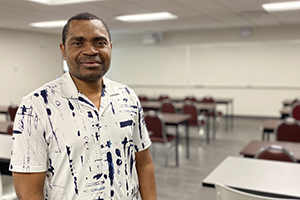
Black History Month at St. Thomas More College
STM professor, students leading the way through contributions to community
By Paul Sinkewicz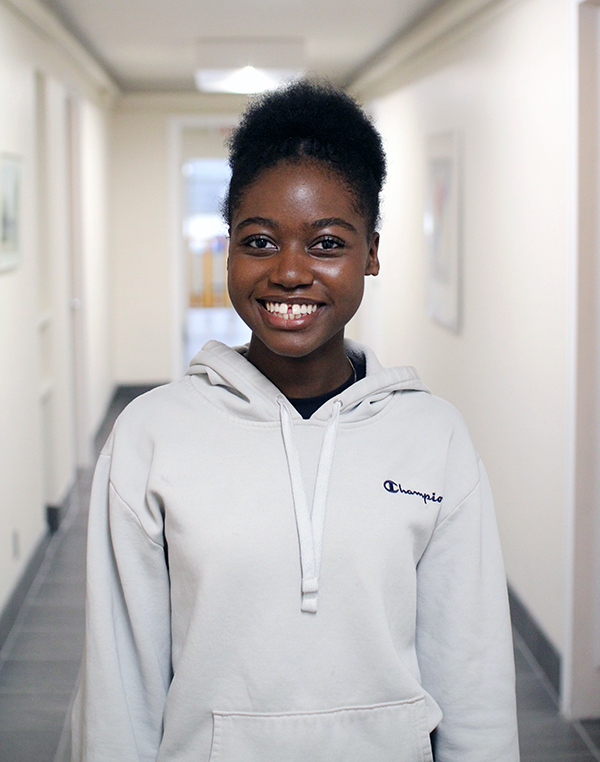
Black History Month did not exist for Henri Biahé until he came to study in Canada in 2008 from his home country of Cameroon.
“It wasn’t until I moved to North America that I actually started commemorating Black History Month,” said Biahé. “I was born and raised in an environment where the population is 100 per cent black.”
“Back home it wasn’t an issue, but when I got here, I understood it is really important.”
Now an Assistant Professor in the Department of Languages, Literatures, and Cultural Studies (French Studies) at St. Thomas More College (STM), Biahé is thankful he was exposed to the teaching of a leading black historian in Canada while studying for his PhD at Dalhousie University in Halifax.
Biahé credits sociologist Dr. Afua Cooper for much of his education in the history of black people in Canada. With Dr. Cooper, Biahé had the opportunity to read extensively about the history of black people in Canada, especially Viola Desmond, a Nova Scotia businesswoman whose image is now on the $10 bill in honour of her work promoting human rights in Canada.
Cooper asked Biahé to join commemorations of Black History Month through a website project. It resonated with Biahe, who notes that many Canadians don’t realize the enslavement of black people is not unique to the United States in North America – it also took place in Canada.
“We need to pause and reflect about the contributions of black people in this country,” Biahé said. “And, also to reflect on how we could contribute further. And also address the issues of discrimination and racism – how we can, together as a society, sit down and engage in a dialogue and live together in a peaceful environment.”
He enjoys living in Saskatoon’s multicultural environment and feels lucky he has not encountered the discrimination and racism that others have suffered.
“I’m very proud to be a black person, but it’s not really a defining feature for me,” he said.
“But at the same time, as a member of a visible minority I’m also fully aware of how some students are seeing me, because here at STM I’m the only black professor.”
Biahé is busy making a little history of his own, with his contributions to Saskatchewan. He and wife Arlette – a primary school teacher – are raising two young children in their new home, and are very involved in the community.
Biahé is an active member of Camsask-Camerounians of Saskatchewan, which has about 100 members in Saskatoon, and is often relied upon to advise members on career choices or academic matters like graduate studies.
His academic work is focused on translation studies, linguistics, and sociolinguistics, and he is a founding member of Collectif d’études partenariales de la fransaskoisie (CEPF), with Dr. Marie-Diane Clarke and Dr. Jeffrey Klassen.
Together they established CEPF in 2020 to be a research center with three main objectives:
- Contribute to the community and intellectual life of the Fransaskois community
- Promote and promote the French language and its variations in Saskatchewan (Mitchif, Laurentian, international French, etc.)
- Promote the literary, artistic and cultural life of the province's French-speaking community
In the group, Biahé’s focus is on the research areas of linguistics, translation studies and drama studies, including the cultural contributions of black playwrights and artists.
“We work together with members of the Francophone community, especially writers and artists,” he said. “We study, for example, the contribution of the francophone black community to theatre in Saskatchewan from a literature, artistic, and cultural point of view, but also from a linguistic point of view because we also contribute to the vitality of the French language in Saskatchewan.”
“So, together that research group is very important.”
Trio of Students Lend a Helping Hand
Contributions to Saskatchewan happen in big and small ways.
The Service and Justice Project at STM is lucky to have attracted the attention of three dedicated volunteers in Maureen Ekwunife, Specious Ngabire, and Ini Lawale. They are lending their time to helping some of the youngest residents of Saskatoon overcome educational challenges.
All three 18-year-olds have family roots in Africa, and have made service to their community an important part of their lives by taking part in the Spark program run by Foundations Learning & Skills Saskatchewan.
The program provides one-to-one reading support for elementary school students in grades 2-4, identified by the school as reading below grade level. Volunteers are matched with elementary school students and meet during the day, twice per week for eight weeks.
The goal of the program is to bring a child’s reading level up to grade level and improve their reading skills and habits.
By the end of the program, many students show improvement in their literacy skills, an enhanced use of learning strategies, display positive reading habits, and develop confidence and awareness of their own improvement, resulting in a greater overall success at school.
“It’s fun. I’ve been urging some of my younger friends to apply for it,” said. Ngabire. “I enjoy putting time toward something that I wouldn’t have otherwise, to be able to go out and help in some way.”
In her first year of university, and eyeing a career in the medical field, Ngabire goes to St. Nicholas School in Evergreen two times a week for one hour each with two students.
She says it can be difficult to work with distracted students, but takes it as a challenge to implement different strategies using games and activities.
Both Ekwunife and Lawale also say the Spark program through the Service and Justice Project is actually really fun.
“Being able to support their growth is very satisfying,” said Ekwunife.
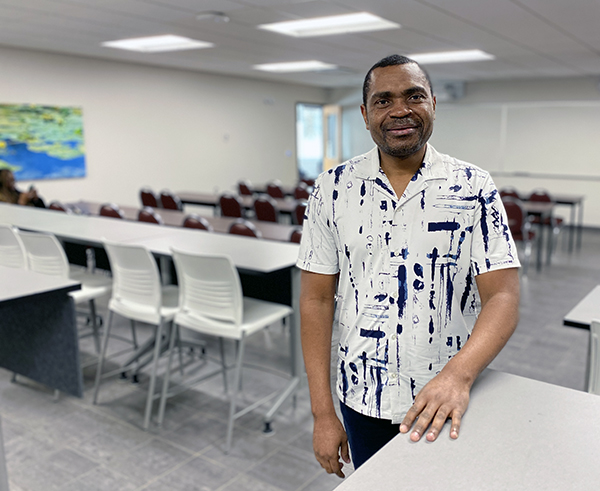
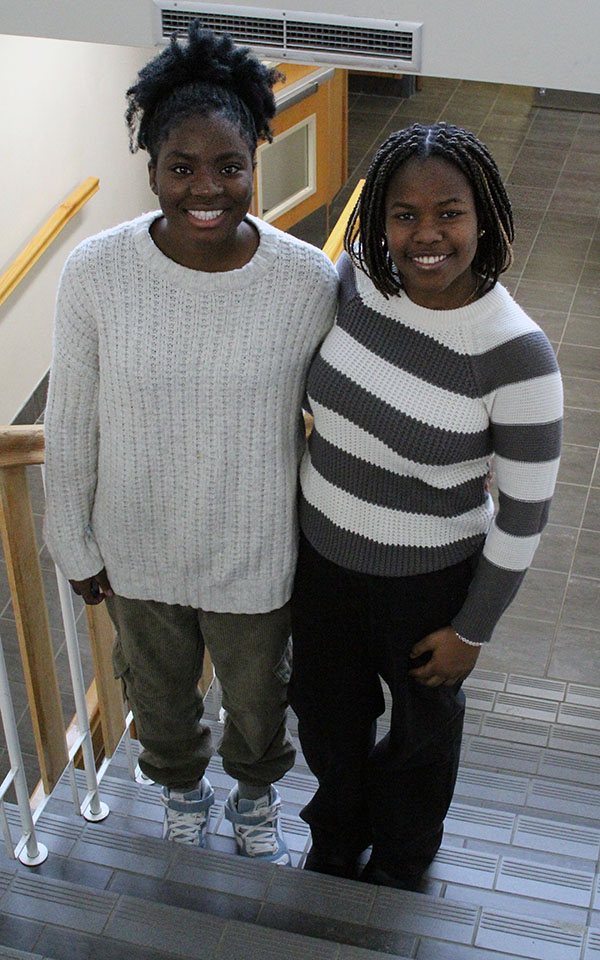
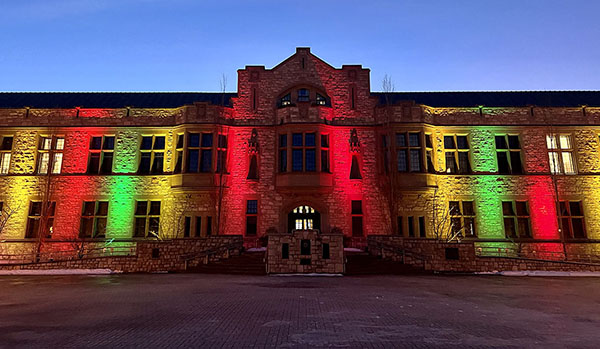
Black History Month at USask Background info:
Scarborough Charter: Building Black Inclusion and Fighting Anti-Black Racism
In the fall of 2020, Canadian universities and colleges from across Canada engaged in a national conversation co-creating significant and tangible actions that would address equity and inclusion in Canadian post-secondary education. These national dialogues focused heavily on anti-Black racism and strategies aimed at increasing Black inclusion in Canadian higher education. Additionally, discussions were centered on designing a concrete plan to meet these aims, a plan that was developed mutually and authentically through the engagement of a number of partner institutions.
The result of these conversations was the creation of the Scarborough Charter on Anti-Black Racism and Black Inclusion in Canadian Higher Education: Principles, Actions and Accountabilities. This document supports and commits to building and sustaining a culture committed to fighting anti-Black racism and supporting Black inclusion in Canadian higher education.
In November 2021, the University of Saskatchewan, along with more than 40 partner institutions across the country, signed the Scarborough Charter.
In 2023, the Provost’s Advisory Committee – Scarborough Charter (PAC-SC) was created to provide USask’s provost and vice-president academic with advice on priorities and actions stemming from the commitments to action outlined in the Scarborough Charter. The PAC-SC will make recommendations on institutional strategy and transformative actionable steps to assist USask in achieving a more respectful, accountable, equitable, diverse, and inclusive community. The PAC-SC will also assist USask in preventing anti-Black racism by critically reviewing policies, processes, and practices to understand how they may contribute to systemic anti-Black racism and by providing recommendations that will further Black inclusion and excellence.
Black History Month at USask
Black History Month at the University of Saskatchewan honours the legacy and contributions of members of the university’s Black community. It is a time to listen to and learn about the accomplishments and lived experiences of the Black community.
Every February there are activities and learning opportunities about Black History Month.
Last year, Black History Month at USask featured more than 25 events organized and hosted by various colleges, schools, units, and departments on campus.
A myriad of learning resources was shared across campus online and in-person. All month long, anyone who visited the USask campus was able to walk through the Bowl after sundown or before sunrise and find the Peter MacKinnon Building lit in celebratory green, red and yellow lights.
“As a U15 university in Canada with an aspiration to be what the world needs, we recognize that our campus, our province, and our country have a duty to support and uplift the Black community in Canada and beyond,” said USask President Peter Stoicheff in a Black History Month reflection at the beginning of February. “USask remains committed to building a more inclusive future for all.”
This year, USask has collaborated with the Pan-African Students' Association (PASA) to explore the Black History Month theme: Radiant Roots: Honouring Our Heritage.
PASA Black Excellence Gala: Radiant Roots
Saturday, Feb. 22, 2025
The Radiant Roots Gala is a celebration that honors African heritage and culture while looking toward a bright and unified future. The evening will feature captivating performances, live music, delicious cuisine, and a vibrant atmosphere, bringing people together to celebrate our roots.
Events
https://spotlight.usask.ca/black-history-month/black-history-month.php
USask Groups
Pan-African Students' Association (PASA)
A Community of African/Black/Caribbean students at USask
https://www.instagram.com/pasa.usask/
Black Faculty and Staff Caucus (BFSC-USask)
The Black Faculty and Staff Caucus (BFSC) is the voice of all Black faculty and staff at the University of Saskatchewan (USask) and was created to provide support and guidance to members, increase their visibility and engagement on campus, and harmonize their common interests to promote a transparent, collegial, and inclusive learning and working environment.
https://blackcaucus.usask.ca/
Further Reading:
History of Black Slavery in Canada
https://humanrights.ca/story/story-black-slavery-canadian-history
The Story of Viola Desmond
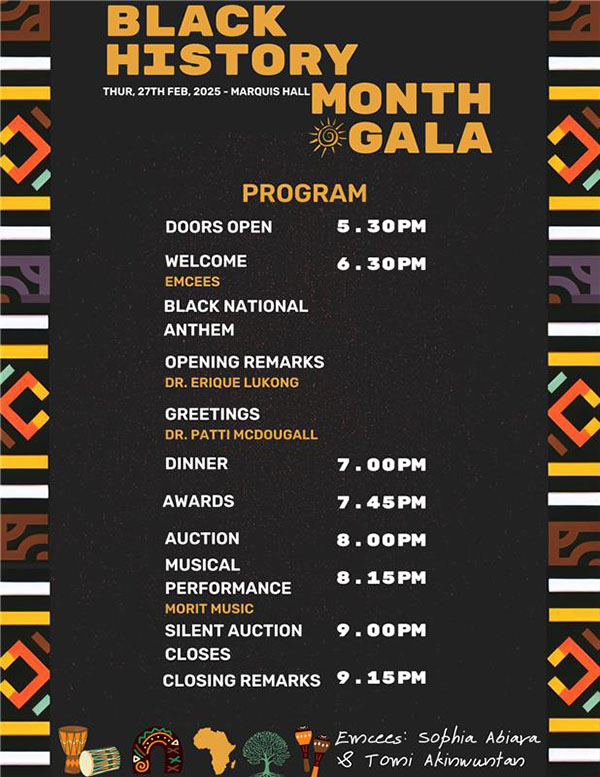
https://www.usask.ca/usask-events/events/2025/02/black-history-month-gala.php
